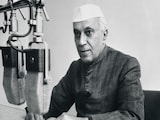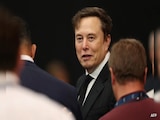One trillion dollars. $US 1,000,000,000,000.
For context, that is more than the Gross Domestic Product of 170 countries, including Singapore, the UAE, Switzerland, Sweden, Norway, Hong Kong, Qatar, and New Zealand in 2024.
It is also the salary Elon Musk will receive over 10 years - in shares and stock options that will almost double his estimated 13 per cent share in Tesla, Inc. - as its Chief Executive Officer.
On Thursday Tesla shareholders gathered in Texas to vote in favour of that payout, despite urgent appeals by activists and some advisory firms, and made corporate governance history.
"I'd like to just give a heartfelt thanks to everyone who supported the shareholder votes," a euphoric Musk said. "I super-appreciate it". Cheers of 'Elon' broke out after the result was announced.
On the trillion-dollar package
It is a staggering and abhorrent payout, wealth equality campaigners have argued, given the wars, famines, droughts, and diseases rampaging across the world, and the good that amount of money could do if funnelled into those battles.
Again, for context in 2021 the United Nations World Food Programme said it would need around $US 40 billion annually to end world hunger by 2030. That is a total of $US400 billion.
That is less than half of what Musk will get and it sets a worrying precedence for future C-suite pay packages, opening the door for even greater (and faster) concentration of wealth.
It is doubly unfair, campaigners have said, that Musk is already worth $US 500 billion, although that could also be argued for all of the billionaires on global rich lists. Data from Forbes indicates that figure for the 10 richest people in the world (not including the Tesla and X boss) is nearly $US1.7 trillion.
Photo: Screengrab from forbes.com/real-time-billionaires
These numbers emphasise alarming levels of financial inequality in the world, a red flag that has been waved by nonprofits and campaigners over the past several years, who have called out stagnating poverty levels worldwide even as the rich get comically richer, faster.
In the build-up to the vote, Tesla said the package reflects Musk's importance to its goal - to generate market capitalisation of $US 8.5 trillion and achieve a maximum EBITDA of $400 billion in 10 years.
Immeasurably wealthy, tragically unfair?
In 2024 Oxfam predicted the world's first trillionaire would be made within a decade.
Twelve months later that prediction was updated - five would be made in that time.
The report said billionaire wealth grew $US 2 trillion in 2024, which was around $US 6 billion generated per day for these individuals, and four new billionaires joined their ranks every week.
In contrast, World Bank has warned of slowdown in the elimination of poverty worldwide in the past decade. Some of that is due to the pandemic that dropped nations into economic crises.
An illustration of the wealth inequality in the world. Image generated by AI
But much of it, the argument can be made, is the result of questionable policy decisions and factors like climate change and wars, in all of which humanity has a major, if not direct, hand.
And, despite the rapid rise of billionaires and the looming emergence of trillionaires, the number of people living in poverty has remained largely unchanged since 1990. The richest one per cent, for example now own over 45 per cent of the wealth, while global poverty hovers at nine per cent.
Governments worldwide are under immense pressure to enact policies to stop wealth concentration.
Much of that debate has revolved around taxes paid (or not paid) by the wealthiest in the world, including Musk. Proposals and calls to tax the rich have been made and not always received well.
Last year US politician Bernie Sanders, a long-time advocate of holding the rich to account, floated a radical idea - the government should confiscate all wealth once it crosses the $US 1 billion-mark.
"Are you basically saying that once you get to US$999 million, the government should confiscate all the rest?" the Vermont Senator was asked on HBO Max, to which he said, "Yeah. You may disagree with me, but I think people can make it on $999 million... I think that they can survive just fine."
Special tax rates for the uber-rich are not a new topic.
Back in 2019, when Sanders was running for US President, he suggested the richest 0.1 per cent of US homes, i.e., with a net worth of over US$32 million should pay an extra one per cent, while those with wealth over $10 billion would pay eight per cent This, he said, would cut billionaires' wealth in half over 15 years and break up the concentration of wealth and power in the hands of the (very) few.
Over the years many countries have toyed with this idea and some have put it into practice.
Norway, for example, has a municipal and a national net wealth tax on people with net assets over a specific threshold. Switzerland, Spain, Bolivia, and Argentina all have some legislation on this topic.
Back to Musk and what he wants
Control.
In October Musk hinted he could leave, or take a back seat, if his ownership is not raised to give him the control he craves, in a dystopian, science-fiction alternate reality, over a "robot army".
"It's not like I'm going to spend the money," he said on a conference call, AFP reported, "It's just if we build this robot army, (I want to) have at least a strong influence over that robot army."
He appeared serious about that, telling shareholders he expects around 80 per cent of Tesla's value to come from Optimus robots, referring to under-development humanoid robotic devices.
He also called Tesla's potential growth "nearly boundless", and said it would beome the most valuable company in the world, if it delivers on its vision for autonomous driving and Artificial Intelligence.
Optimus robots are central to Musk's vision of a world driven by AI. Credit: tesla.com
Bizarre comments, one could argue, are Musk's stock-in-trade. So, here's another. In that same October earnings call, he raved about "corporate terrorists" and being "ousted", a response to proxy advisory firms like Glass, Lewis & Co. urging shareholders to reject the trillion-dollar package.
Overall, 'control' is a theme that figures in Musk's world, and he has often argued for more of that for himself in companies he runs, including X, one of the world's most influential social media platforms.
And what Tesla Wants
Musk.
Corporate-speak from the company in early October called the package a 'performance-driven, long-term incentive aligned with Tesla's ambitious growth objectives', which include increasing vehicle production to 20 million annually. Musk is the key to these goals, the company said.
The company threw its weight behind this proposal. Tesla Chair Robin Denholm appeared on major US television channels to sell the plan, despite criticism over dropping Tesla vehicle sales.
Tesla's Model Y (File).
"Without Elon, Tesla could lose significant value, as our company may no longer be valued for what we aim to become: a transformative force reimagining the fundamental building blocks of mobility, energy and labor," Denholm said in an October 27 message to shareholders.
Tesla, however, also pointed out the package's structure doesn't give Musk all of the control immediately. Instead, it gives him voting rights incrementally as each of 12 milestones are met.
How Musk can get his $1 trillion
Musk does not draw a traditional salary. Instead, the approved package comes as a series of stock grants that could award him up to 423.7 million additional Tesla shares over the next decade.
The first payout will be available when Tesla reaches $2 trillion in value; it is now $1.5 trillion.
READ | What Elon Musk Must Do To Unlock $1 Trillion Tesla Package
And the plan also involves operating profit and product goals, such as the delivery of 20 million vehicles. This, the company argued, retains oversight with the shareholders.
The proposal was panned by Glass Lewis and Institutional Shareholder Services.
An ISS analysis last month criticised the rationale for the potential windfall, noting Musk's financial interests are already closely tied to Tesla's fate. The analysis also said the separation into 'tranches of unprecedented' value could undermine the necessity for all goals to be realised.
NDTV is now available on WhatsApp channels. Click on the link to get all the latest updates from NDTV on your chat.















